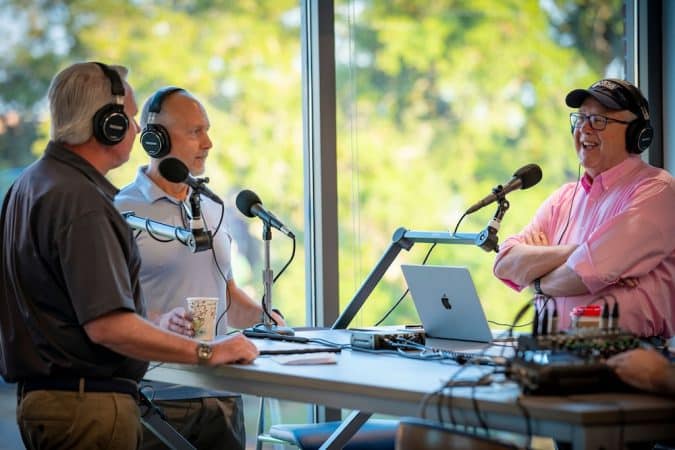
Dr. Marcas Bamman has received a $7.7 million award from the National Institutes of Health (NIH) for a clinical trial to determine how people age 60 and older (Rick Outzen?) attain the health benefits of exercise.
- Bamman is a senior research scientist at the Florida Institute for Human and Machine Cognition (IHMC) and leads the Institute’s Healthspan, Resilience, and Performance team.
This new project, “Multidimensional Predictive Modeling to Understand Mechanisms of Exercise Response Heterogeneity in Older Adults, ” is a collaboration between the Oklahoma Medical Research Foundation and the University of Florida.
“This type of research is what the new Healthspan, Resilience, and Performance Research Complex was built to sustain,” says IHMC’s CEO and Founder, Dr. Ken Ford. “We anticipate that this research will foster significant advances in the understanding of the factors that impact the variability of response to exercise among older adults.”
“Age-related functional declines are thought to be caused by hallmark biological processes that compromise healthspan and quality of life,” says Bamman.
“Exercise is a potent treatment with promise to mitigate most aging hallmarks, but there is substantial variability in individual exercise responsiveness,” Bamman says. “This project will help us begin to understand what underlies those differences in responsiveness.”
Dig Deeper: The project will combine endurance and resistance training in alignment with public health guidelines to better understand variable exercise responsiveness in older adults. The goal is to improve each older adult’s capacity to attain the many health benefits of exercise.
- This inter-individual response heterogeneity was first identified in the context of endurance training and later established with resistance training by current members of the IHMC team nearly 20 years ago. IHMC’s team has proposed the innovative but logical strategy of using combined endurance training and resistance training to maximize health benefits in aging adults.
Low cardiorespiratory fitness and low functional muscle quality are manifestations of the deterioration caused by cellular aging. Importantly, both conditions are modifiable with endurance training and resistance training.
The two-phase trial, managed by Senior Research Associate Craig Tuggle, will recruit up to 250 people ages 60 and up for a 23-week study period.
- “We know that exercise is a bit of a miracle drug,” Tuggle says. “But we want to explore and better understand the variability in responses people have to it.”
In Phase I, participants will be put on a protocol of endurance and resistance training three days a week. For Phase II, some will receive targeted augmentation (a boosted exercise prescription and free-living recommendations), while others will continue the Phase I endurance and resistance training protocol.
Recruitment of participants is likely to begin in late 2024 or early 2025.



